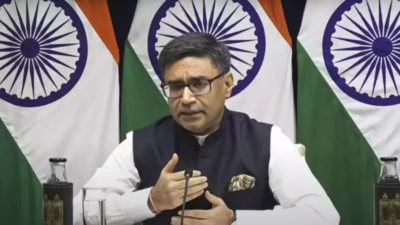NEW DELHI: Amid signs of improvement in ties with China, India Thursday announced that foreign secretary Vikram Misri will visit Beijing on Jan 26-27 for a meeting of the foreign secretary-vice minister mechanism between the two countries.
This will be the second high-level visit from India after NSA Ajit Doval travelled to Beijing last month for talks between the special representatives, and is part of the understanding both sides reached after the Oct 21 disengagement agreement, for normalisation of relationship.

While working with like-minded partners to ensure security and respect for rule of law in the Indo-Pacific, the govt realises it’s important to revive bilateral exchanges with Beijing without compromising on its national security. Doval and his counterpart Wang Yi in their meeting stressed ensuring peaceful conditions on the ground so that border issues do not hold back the normal development of bilateral relations.
Cross-border cooperation to be discussed
The resumption of this bilateral mechanism flows from the agreement at the leadership level to discuss the next steps for India-China relations, including in the political, economic and people-to-people domains,” govt said in its announcement on Misri’s visit, referring to the outcome of PM Narendra Modi’s meeting with President Xi Jinping in Kazan in Oct.
Issues such as cross-border cooperation and exchanges, including resumption of the Kailash Mansarovar Yatra, data sharing on trans-border rivers and border trade, are likely to be discussed during the visit by Misri. China has also been pressing India for resumption of direct flights and more visas for Chinese nationals. While India is closely following China’s construction of a hydropower project in the lower reaches of the Yarlung Zangbo river, China has given assurances that it won’t affect water flow to lower riparian countries.




